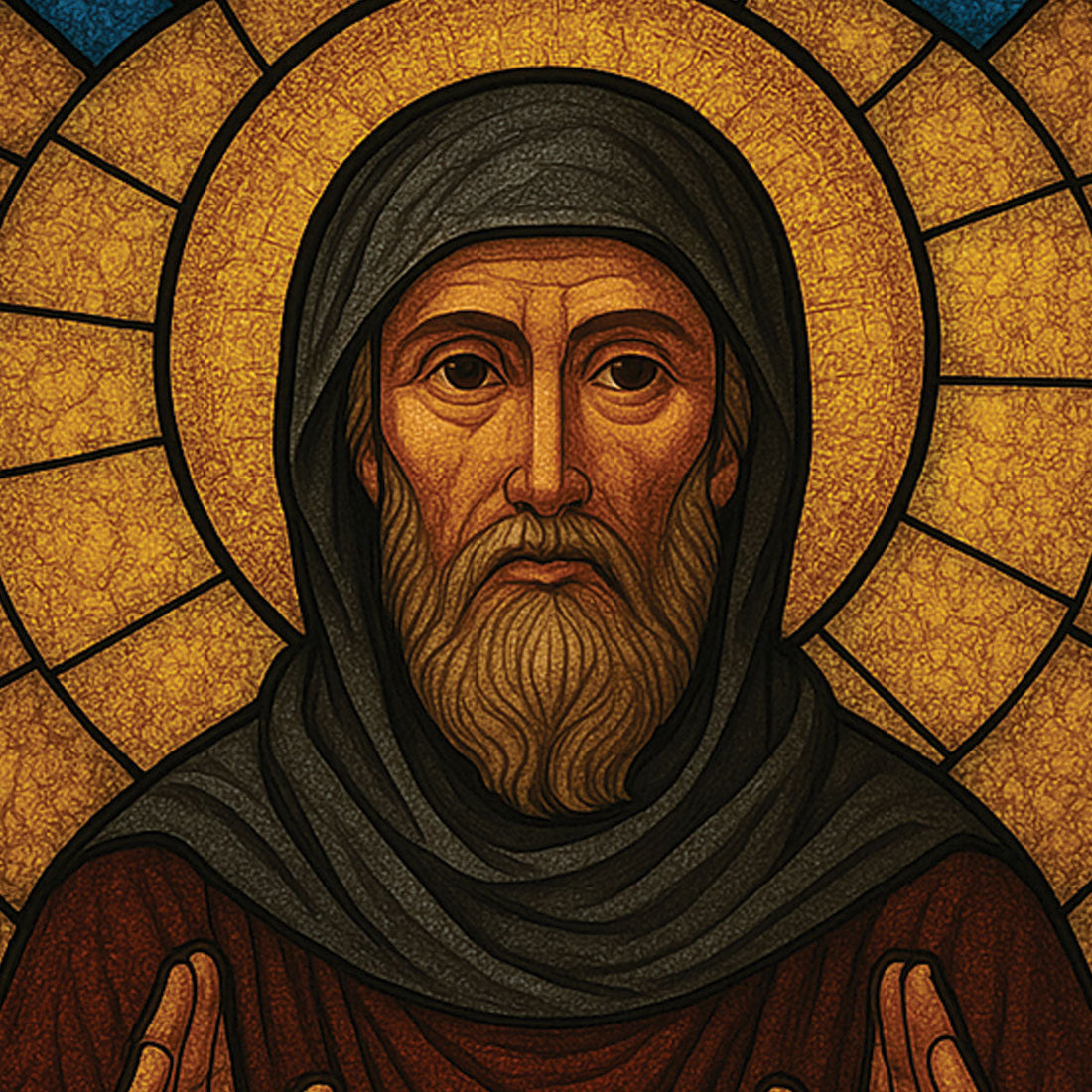
St. Ephrem
Feast Day: June 9

“Give help to the sinner, rather than harsh words; for the sick need medicine, not scolding.” —St. Ephrem the Syrian
St. Ephrem the Syrian was a deacon, hymn writer, and Doctor of the Church known for his poetic theology and deep devotion. A voice of orthodoxy in the early Church, he defended the faith with beauty and truth, using song and Scripture to draw the faithful into deeper union with God. His legacy remains strong in both Eastern and Western Christian traditions.
A Scholar and Servant
Ephrem was born around the year 306 in Nisibis (modern-day Turkey), in the region of Mesopotamia. He was baptized as a young man and likely studied under Bishop Jacob of Nisibis. Ephrem was ordained a deacon, a role he embraced with humility and service, and he chose never to pursue the priesthood.
When Nisibis fell to the Persians, Ephrem fled to Edessa, where he spent most of his life teaching, writing, and serving the poor. He was known for his austerity, his life of prayer, and his dedication to the truth.
A Poet and Defender of the Faith
Ephrem's greatest gift to the Church was his writing. He composed hundreds of hymns, poems, and biblical commentaries, many of which still survive today. His hymns were not only beautiful but deeply theological—combating heresies of the time by expressing true doctrine through poetry and song. These hymns became tools of catechesis, helping the faithful learn and love the faith.
He had a particular devotion to the Blessed Virgin Mary and is one of the earliest Church Fathers to speak clearly of her perpetual virginity and her role as the New Eve.
A Humble Deacon and Saint
Though widely respected, Ephrem lived simply, often in a small cave near the city of Edessa. When a famine struck the city, he came out of his solitude to organize relief efforts and care for the hungry. He died shortly after, around the year 373, having spent himself in service to God and neighbor.
Legacy and Inspiration
St. Ephrem is honored as a Doctor of the Church and is especially beloved in the Eastern Christian world. His title, “Harp of the Holy Spirit,” reflects his ability to blend theology and beauty in praise of God. He calls us to seek the truth not only in arguments but in the beauty of sacred words, hymns, and a life of humble service.








